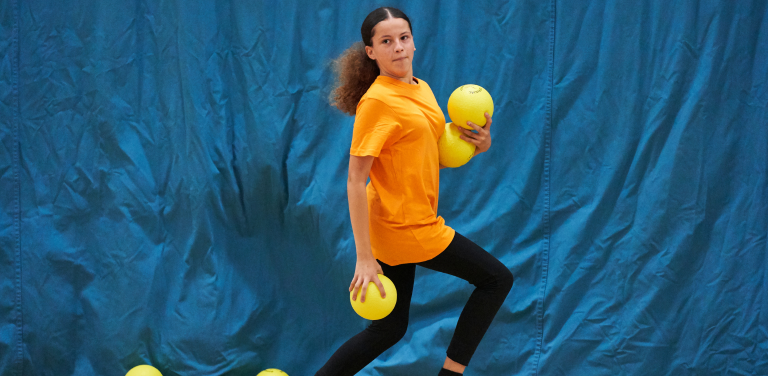Clothworkers’ Foundation
Capital grants are available to UK registered charities working in the UK in one of the following areas: communities experiencing racial inequalities, disabilities, domestic and sexual abuse, economic disadvantage, homelessness, LGBT+ communities, older people facing disadvantage, prison and rehabilitation, substance misuse and addiction, and young people facing disadvantage.
The Clothworkers’ Foundation was set up on 18 July 1977 by The Clothworkers’ Company. Since it was established, the Foundation has awarded grants of £152 million.
Objectives of Fund
The Foundation aims to use its funding to improve the quality of life for people and communities that face disadvantage and marginalisation.
For larger projects (£100,000+), the Foundation generally funds 10% or more of the balance to be raised. For example, if the project cost was £200,000 and the applicant had £150,000 left to raise, the grant award would be at least £15,000. The larger a project, the larger the grant is likely to be.
For smaller projects (with a balance of less than £10,000), the Foundation generally funds between 50% and 100% of the balance.
Who Can Apply
UK registered charities, community interest companies, and other registered UK not-for-profit organisations (including special schools) with an annual income under £10 million can apply.
Applicants must be able to demonstrate that the work of their organisation fits within one or more of the Foundation’s programme areas and that at least 50% of service users benefiting from the capital project are from one or more of those groups.
The Foundation does not fund the following:
Salaries and overheads.
Training.
Volunteer expenses.
Rent.
Lease of property or equipment.
Professional fees.
Marketing/literature/leaflets.
Equipment for one-off use, or which will be given to service users for personal use on a permanent basis.
One-off events.
Organisations which have received a grant offer from the Foundation within the last five years (unless they have been specifically invited to reapply).
Organisations that promote a particular religion or only provide services to people of a particular religion.
Organisations which have had an application declined in the last six months (please note: organisations cannot reapply for the same project if it has been declined).
Organisations with over £10 million income per annum.
Organisations with over 12 months of reserves.
Hospices and NHS charities.
Grant-making organisations.
Schools colleges or universities (unless their students are exclusively individuals with physical disabilities and/or learning differences eg special schools). PRUs or Alternative Provision providers are not eligible for funding.
Almshouses.
Applications for a project which the Foundation has previously declined.
Medical research or medical equipment.
Consumables such as clothes, food, sports kits and stationery.
Setting up/refurbishment of charity shops.
General appeals and emergency appeals.
Political projects.
Heritage projects.
Arts and education projects unless they work exclusively with individuals from the Foundation’s programme areas.
Cost of a software license for a period of time (beyond the initial set up or upgrade period, which includes up to 12 months for a first time subscription).
Ongoing website hosting costs.
The design of a new service.
Costs relating specifically to rebranding.
Projects that are still in the initial ‘brainstorming’ stage.
Vehicle leasing.
Organisations whose core activity is community transport.
Eligible Expenditure
This Foundation awards grants in the following areas:
Substance misuse and addiction – organisations supporting people and families affected by drugs and/or alcohol misuse.
Disabilities (inc. mental health and visual impairment) – organisations supporting people who have physical and/or learning disabilities, and/or people experiencing mental health issues. The Foundation has a long-standing commitment to visual impairment, so it welcomes applications from organisations focused in this area.
Communities experiencing racial inequalities – organisations supporting communities affected by racism, and organisations working to promote racial equity.
Young people facing disadvantage – organisations supporting young people facing disadvantages, particularly (but not limited to) young people in care or leaving care and young people not in employment, education or training.
Domestic and sexual abuse – organisations supporting adults and children affected by any form of domestic or sexual abuse.
Older people facing disadvantage – organisations providing services for older people facing disadvantage, particularly (but not limited to) economic disadvantage and isolation.
Homelessness – organisations providing services for people who are homeless or at risk of becoming homeless.
Prison and rehabilitation – organisations supporting people in prison and their families, those at risk of offending, and the rehabilitation of those leaving prison.
LGBT+ and communities – organisations providing support to lesbian, gay, bisexual and transgender people facing disadvantage or discrimination.
Economic disadvantage – organisations supporting individuals or communities experiencing poverty and deprivation.
NB At least 50% of an applying organisation’s service users benefiting from the capital project must be from one or more of the above groups.
Funding is available for capital costs. This means tangible items or work, including:
Buildings – purchase, construction, renovation and/or refurbishment.
Fittings, fixtures, and equipment – this includes but is not limited to office equipment/furniture, sports/gym equipment, digital/audio visual equipment, software and websites, garden equipment, specialist therapeutic (excluding medical) equipment.
Vehicles – includes (but is not exclusive to) minibuses, cars, caravans, people-carriers, 4×4 and boats. The Foundation is unlikely to fund the total cost of a new vehicle or award funding to an organisation that already owns a large number of vehicles.
The eligibility criteria for applications to the Open Grants Programmes has expanded to include digital projects beyond hardware. The funders will now consider funding one-off costs for some types of digital software and products.
The foundation will consider one-off costs towards:
Moving paper-based processes online so organisations can make better use of digital technology. This is sometimes described as ‘digitising processes’ and can include the tech infrastructure and devices needed eg cloud storage and tablets for data collection.
Support for developing or updating the digital tools used to communicate, such as websites, apps or messaging platforms.
Adding new digital features to services an organisation already has to make them easier for people to use and access.
Examples of eligible projects (this list is not exhaustive):
Development of a new or upgrade of an existing website.
Initial database/CRM set-up costs eg consultancy costs for customisation, initial training and support costs.
Costs to upgrade or refresh an existing database.
Database integration/integration across databases and other digital software used.
Making a service already offered accessible online (for example, via a specialised app or website function).
How To Apply
Applications may be submitted at any time.
Applicants must first complete an online eligibility quiz to get access to an online application form.
Documents & links
The Clothworkers’ Company
The Clothworkers’ Foundation – Grants
Contacts
For further information on how to obtain this fund, please contact the following:
Enquiries
Clothworkers’ Foundation
Dunster Court
Mincing Lane
London
EC3R 7AH
Email: foundation@clothworkers.co.uk





